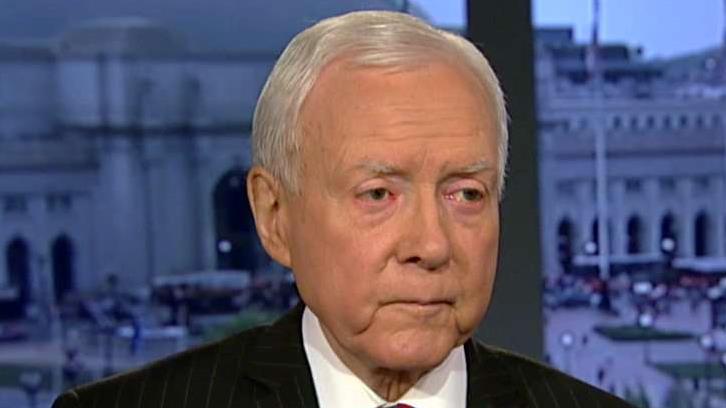Trump-GOP tax reform framework: Corporate rate cut, state and local deductions dropped
President Donald Trump and Republican lawmakers are set to unveil their signature tax reform framework on Wednesday, which will include their desired individual and corporate rates as well as the elimination of state and local tax deductions, FOX Business has learned.
Senior White House officials tell FOX Business that the writers of the tax reform blueprint, known as the “Big Six” which includes National Economic Council Director Gary Cohn, Treasury Secretary Steven Mnuchin, House Ways and Means Committee Chairman Kevin Brad, R-Texas, House Speaker Paul Ryan, R-Wis., Senate Majority Leader Mitch McConnell, R-Ky., and Senate Finance Committee Chairman Orrin Hatch, R-Utah, are introducing cutting the corporate rate from 35% to 20%.
Their proposed corporate rate slightly differs from Trump’s hope of 15%, but according to administration officials, that was the best agreement they could come to with congressional leaders on Capitol Hill who were on the fence about bringing down the rate to such a low level.
The framework will also include cutting back the rate for “pass through” businesses from 39.6% to 25% and the top individual rate will also see a cut from 39.6% to 35%. On the individual side, taxpayers will also see their income brackets broken down from seven to three, with the rates being compressed to 12%, 25% and 35%, as well as a doubling of their standard deduction.
The idea of giving those at the top of the income scale a tax cut is a reversal from what Trump had been promising as recently as Tuesday when in a meeting with members of the House Ways and Means Committee, he said “wealthy people would see no benefit” from his tax plan, according to those familiar with the matter.
The White House though is also giving the congressional tax-writing committee the option of adding a mysterious fourth individual tax bracket that will be higher than the top proposed 35% rate. While the senior officials did not elaborate on what that rate could be, it will likely be meant as a way for Trump to keep his promise on not allowing wealthy individuals to receive a tax cut from his plan.
One of the more controversial aspects of the Republican tax blueprint is the idea of eliminating state and local tax deductions, also known as SALT, as a way to pay for the extensive tax cuts. One-third of the value of the tax break is used by tax filers in the high-taxed states of New York, New Jersey and California collectively, according to a study by the nonpartisan Center for a Responsible Federal Budget, and already lawmakers from those states are taking a stand.
Congressman Mike Thompson, D-Calif., told FOX Business in an interview on Tuesday that he would not support the elimination of the SALT deduction.
“I would be totally against that because it hurts middle class people. It hurts a number of states and I don’t understand what they would gain for doing that, other than hurting working class people,” Thompson said.
Republicans, particularly those who represent the three states that would lose the approximately $1.3 trillion tax break, are also up in arms with the proposal. Rep. Peter King, R-N.Y., said in a recent interview that he too could not support a tax bill that eliminates SALT and called it “essential” to his district.
As FOX Business reported, the estate tax, known as the “death tax” in Republican circles, will also be eliminated as part of Trump’s plan. The federal estate tax is a tax on property including real estate, cash and stocks, that is transferred from deceased persons to their heirs. The catch is, only the wealthiest estates in the United States pay the tax because it’s levied against those whose total estate exceeds a certain exemption level.
According to the Joint Committee on Taxation, 99.8% of estates owe no estate tax at all, leaving the estates of 0.2% of the wealthiest Americans to pay up.
Since the Internal Revenue Service (IRS) has an exemption limit of $5.49 million per person, according to the Center on Budget and Policy Priorities, an estate worth approximately $6 million would be required to pay a tax of, at most, $510,000. In other words, the wealthiest taxpayers owe a small amount of their estate’s value to the government if it exceeds the federal exemption requirements.
The White House also confirmed that it is recommending the removal of the alternative minimum tax (AMT), which requires taxpayers to calculate their liability twice: once under the rules for the regular income tax and once under the AMT rules, and then pay the higher amount, according to the Tax Policy Center.




















